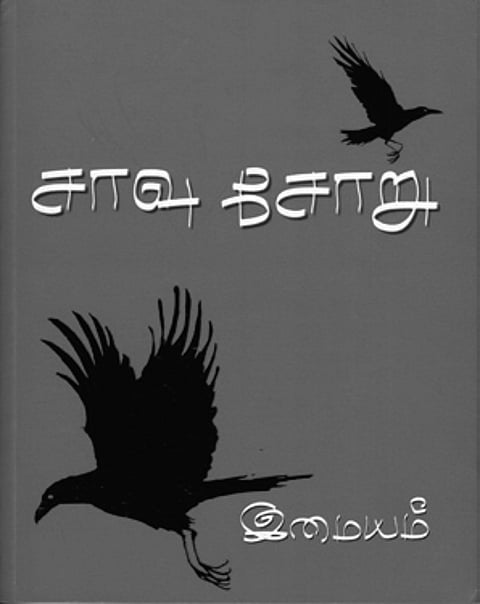

CUDDALORE: Tamil writer Imayam, whose short story, Pethavan (The Begetter), was much-discussed after the Dharmapuri communal strife of 2012 had a striking similarity to his work of fiction, has now come out with a book, Saavu Soru, a collection of nine stories highlighting rural women’s aspirations that are seemingly different from that of men at least when it comes to caste and marriage.
The title story, Saavu Soru (Funeral Food), has a woman, whose daughter has eloped with a lower caste man, earning the wrath of the community. Though the men in the family have written her off by observing funeral rites for the girl and have even got their heads tonsured, the mother is looking for the girl. She wants to meet her and hand over the jewellery and other articles of the daughter.
In the story titled Varam, the girl elopes with a cousin – seen as a brother and hence an inappropriate match. The distressed mother gives vent to her feeling before the village god, saying that instead of committing such a “shameful” act, the daughter could have eloped with a lower caste man. She wants god to punish the girl who has married a ‘brother’.
Most of the stories have female characters, who are harassed and distressed in a male-dominated subaltern society.
The story Thirutupona Ponnu (Stolen Girl) is about an elderly spinster, who was kidnapped mistakenly soon after she attained puberty.
Though the girl was returned by those who kidnapped her without causing any harm, no man is ready to marry her after that. The story deals with the woman’s pain and melancholy.
The woman in Perasai (Greed) agrees to marry a man, whom she does not find that attractive, just because he works in a city. Her priority is to live in a house with a toilet.
Through the protagonist of Arasanga Pallikoodam (Government School), a daily wage earner, Imayam takes pot shots at the culture of celebrating cinema stars’ birthdays. She is summoned to the school because the teachers were peeved over her daughter distributing chocolates to her classmates on the occasion of her favourite film star’s birthday.
But the mother defends the girl and points to people tonsuring their heads when a film star was ill.
Taking a dig at the craze for admitting children to private schools, Imayam, in Raniyin Kathal, portrays the central character, Rani, as one who stoops to any level just to mobilise money for paying the fees of her children. In fact the stories reflect life in rural subaltern communities, presenting the trials and tribulations of the people realistically.
One aspect of rustic life is the communication of the people with their local family deities.
“They treat gods as an acquaintance. They express their anger and even scold the god,” Imayam, who hails from Vridhachalam, told Express. That gets most reflected in the story, Aagasathin Utharavu, where a thief asks god for permission to go about his ‘work’.